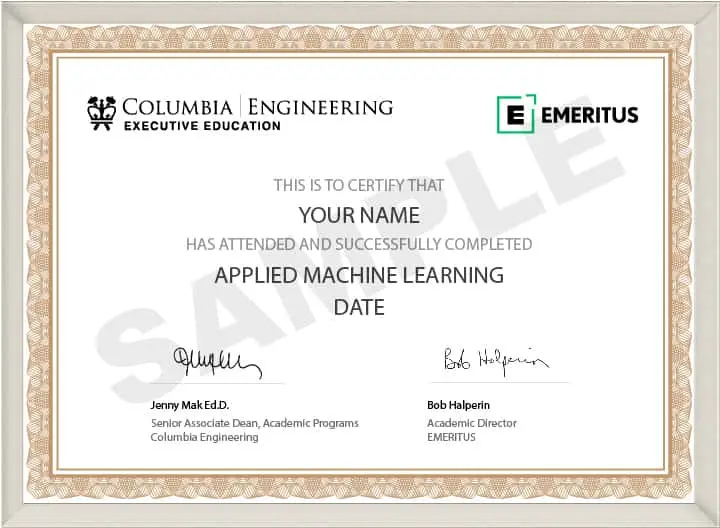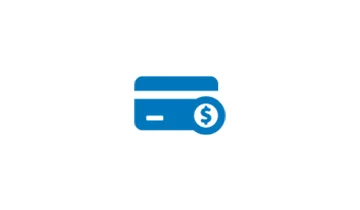Applied Machine Learning
Course Highlights

240+ Faculty Video Lectures

45 Quizzes / Assignments

18 Moderated Discussion Boards

20+ Q&A Sessions with Course Leaders

12 Application Projects

Includes Live Online Teaching
Learning Journey
Going beyond the theory, our approach invites participants into a conversation, where learning is facilitated by live subject matter experts and enriched by practitioners in the field of machine learning:
Define a model for your data and make the model learn.
Build regression models to predict an unknown output from a given set of inputs.
Create classification models to categorize datasets such as email messages as spam or non-spam.
Develop unsupervised models like topic models or recommender systems to extract hidden patterns from large amounts of data
Determine hidden parameters in data to improve the accuracy of your model's predictions.
Create probabilistic data models to predict a range of possible outcomes that account for real-world risks and uncertainties.
Program Topics
Designed to teach you models and methods used in machine learning for real-world applications such as recommender systems and classification models, this 5-month program begins by building your foundational skills in Python, followed by the supervised and unsupervised learning techniques of applied machine learning.
Faculty

Columbia University Associate Professor, Electrical Engineering Affiliated Member, Data Sciences Institute
John has a PhD from Duke and has been a postdoctoral researcher in the Computer Science departments at Princeton University and UC Berkeley. John Paisley’s research focuses on...
Testimonials

Certificate
Upon successful completion of the course, participants will receive a verified digital certificate from Emeritus in collaboration with Columbia Engineering Executive Education.
Course FAQs
Didn't find what you were looking for? Write to us at learner.success@emeritus.org or Schedule a call with one of our Program Advisors or call us at +1 315 840 3227 (US) / +44 203 838 0797 (UK) / +65 3129 4176 (SG)
Early registrations are encouraged. Seats fill up quickly!
Flexible payment options available.
Starts On





